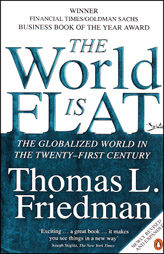Avoiding Armageddon : America, India, and Pakistan to the Brink and Back
The India—Pakistan—America relationship has never been a settled one. In Avoiding Armageddon, Bruce Riedel explains the challenge and the importance of successfully managing America's affairs with these two emerging powers and their toxic relationship. The fact that India and Pakistan will be among the most important countries in the twenty-first century makes this a pressing concern.
Born from the British Raj, the two nations share a conmion heritage, but they are different in many important ways. India is already the world's largest democracy and will soon become the planet's most populous nation. Pakistan, soon to be the fifth most populous country, has a troubled history of military coups, dictators, and harboring terrorists such as Osama bin Laden.
The long-time rivals are nuclear powers, with tested weapons. They have fought four wars with each other and have gone to the brink of war several times. Meanwhile, U.S. presidents since Franklin Roosevelt have been increasingly involved in the region's affairs In the past two decades alone, the White House has intenened several times to prevent nuclear confrontation in the subcontinent. South Asia clearly is critical to American national security, and the volatile relationship between India and Pakistan is the crucial factor determining whether the region can ever be safe and stable.
Full of riveting details of what went on behind the scenes, and based on extensive research and Riedel's role in advising four U.S. presidents on the region, Avoiding Ai mageddon reviews the history of American diplomacy in South Asia, the . . . continued from the front flap crises that have flared in recent years, and the prospects for future crisis. Riedel provides an in-depth look at the Mumbai terrorist attack in 2008, the worst terrorist outrage since 9/11, and he concludes with authoritative analysis on what the future is likely to hold for America and the South Asia puzzle as well as recommendations on how Washington should proceed.
Born from the British Raj, the two nations share a conmion heritage, but they are different in many important ways. India is already the world's largest democracy and will soon become the planet's most populous nation. Pakistan, soon to be the fifth most populous country, has a troubled history of military coups, dictators, and harboring terrorists such as Osama bin Laden.
The long-time rivals are nuclear powers, with tested weapons. They have fought four wars with each other and have gone to the brink of war several times. Meanwhile, U.S. presidents since Franklin Roosevelt have been increasingly involved in the region's affairs In the past two decades alone, the White House has intenened several times to prevent nuclear confrontation in the subcontinent. South Asia clearly is critical to American national security, and the volatile relationship between India and Pakistan is the crucial factor determining whether the region can ever be safe and stable.
Full of riveting details of what went on behind the scenes, and based on extensive research and Riedel's role in advising four U.S. presidents on the region, Avoiding Ai mageddon reviews the history of American diplomacy in South Asia, the . . . continued from the front flap crises that have flared in recent years, and the prospects for future crisis. Riedel provides an in-depth look at the Mumbai terrorist attack in 2008, the worst terrorist outrage since 9/11, and he concludes with authoritative analysis on what the future is likely to hold for America and the South Asia puzzle as well as recommendations on how Washington should proceed.
Top rated books in this category





























